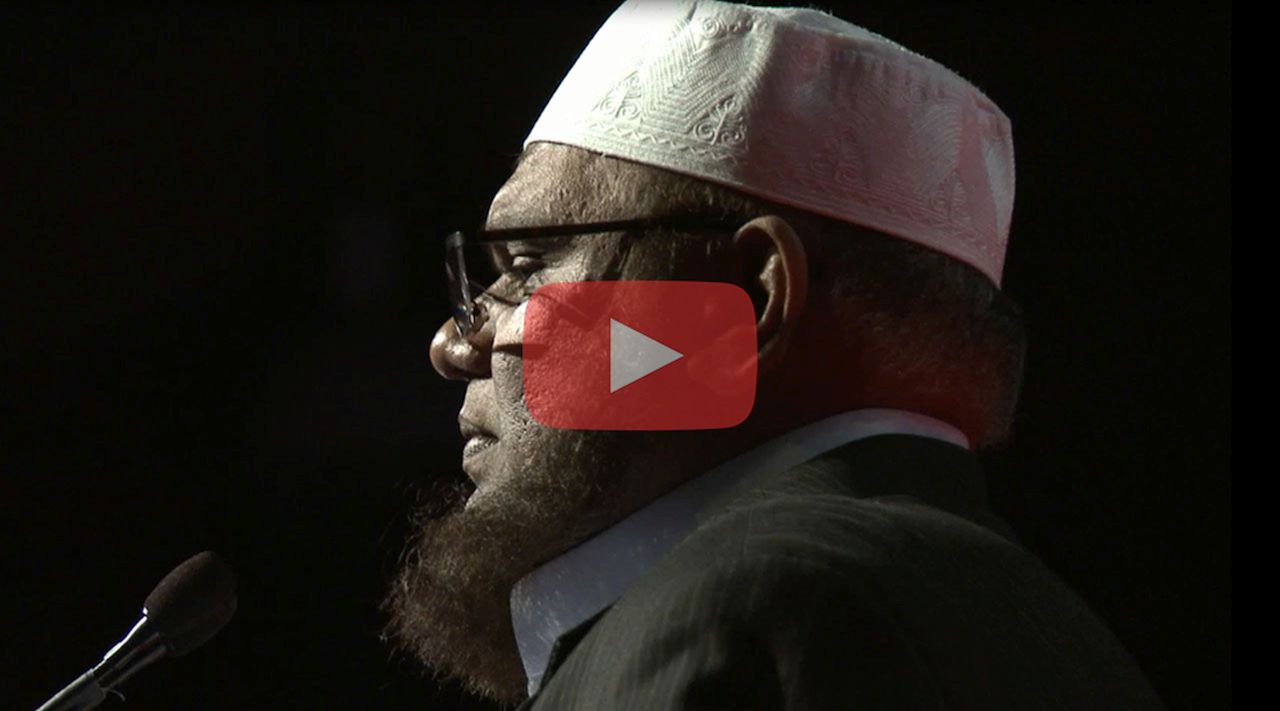Abu Hurairah (may Allah be pleased with him) reported that the Messenger of Allah said:
Allah will say on the Day of Judgment, ‘Son of Adam, I was sick but you did not visit Me.’
‘My Lord, How could I visit You when You are the Lord of the Worlds?’
‘Did you not know that one of My servants was sick and you didn’t visit him? If you had visited him you would have found Me there.’
Then Allah will say, ‘Son of Adam, I needed food but you did not feed Me.’
‘My Lord, How could I feed You when You are the Lord of the Worlds?’
‘Did you not know that one of My servants was hungry but you did not feed him? If you had fed him you would have found its reward with Me.’
‘Son of Adam, I was thirsty, but you did not give Me something to drink.’
‘My Lord, How could I give a drink when You are the Lord of the Worlds?’
‘Did you not know that one of My servants was thirsty but you did not give him a drink? If you had given him a drink, you would have found its reward with Me.’ (Al-Bukhari)
Just as the Prophet (peace and blessings be upon him) was sent as a mercy to mankind, so should we be a mercy to everyone whose lives we touch. In serving others and giving to others, we find our Lord.
In His mercy, the path to Him is one of peace and improving the world around us. Only by helping others can we help ourselves. We cannot live a life of consumption and selfishness and expect to win the pleasure of Allah along the way.
It is out of the mercy and wisdom of Allah that He made serving others and creating a peaceful, compassionate earth one of the landmarks in the journey to Him. We cannot afford to ignore the suffering around us, because in those pleas for help is a call to getting closer to our Creator. In this hadith, the Prophet (peace and blessings be upon him) tells us that if you ever hoped for a direct route to the pleasure of Allah, here it is.
Therefore, we have to revive our sensitivity to the simple acts of service we can do everyday. When we hear of someone who is sick or in need, the impulse that we feel to help should be so strong that it is impossible to ignore. Instead, many of us have desensitized ourselves to suffering because it is out of sync with the lifestyles we choose. At most, we may be persuaded to donate, but usually not more.
Yet in the feeding of the poor, relieving the thirst and suffering, and comforting the sick lies an incredible closeness to Almighty Allah, so much that He says that He is there Himself, Glory to Him.
Maybe we can rethink our priorities so that we jump at the chance to be there in the places and opportunities where the pleasure of Allah can be found. Maybe we can foster a high level of alertness so that we are always on the lookout for ways to please Allah through comforting the suffering people in our communities and neighborhoods.
This hadith also assures us that serving people does not need any other motive than seeking Allah. Our communities do not need a concrete gain in order to dedicate their time and resources to easing the hardship of others. We must truly seek Allah only in what we do for others.
Feeding the hungry, cooking for a new mom, or shoveling our neighbor’s driveway do not need to be a chance to spread Islam or in order to prove ourselves as worthy citizens—sometimes it can just be about Allah. Even when our efforts and programs are criticized or targeted, if the motivation is pure we should not be deterred by the ill will of some people.
In our dedication to peace as individuals and communities, we must insist that our presence be a blessing and mercy to every neighborhood and city that we are in.
References
Taken with slight moderations from the authors’ Book Seeking Peace
